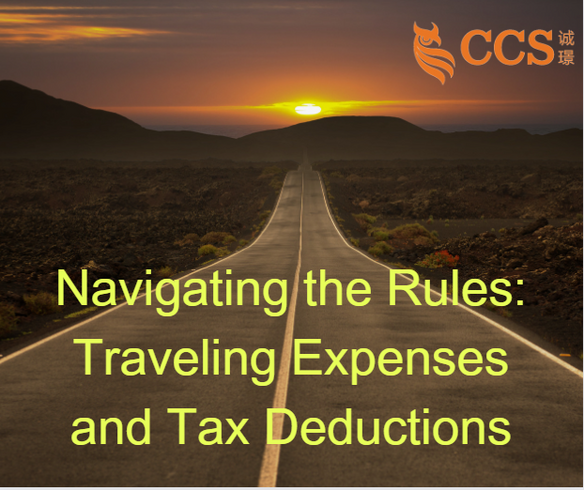Introduction
The deductibility of travel expenses has been a common issue disputed between taxpayers and tax authorities.
Several landmark UK tax cases have established important principles that guide the resolution of such disputes in Malaysia as well.
Revenue Law
Under Malaysian tax law, expenses are deductible under Section 33(1) if they are wholly and exclusively incurred in the production of gross income.
However, travel expenses incurred between an individual’s residence and place of employment are treated as personal expenses and disallowed under Section 39(1)(d).
Inland Revenue’s Position
The Inland Revenue assumes that daily travel between an individual’s residence and a usual place of work is a personal expense related to allowing the person to live at home while working.
Therefore, such travel costs are not incurred in the production of income and not tax deductible.
Court’s Position
The courts in cases like Mallal, Newsom and Taylor have affirmed the principle that expenses for travel between home and the regular place of employment are generally non-deductible private expenses rather than business expenses.
This is so even if some work is done from home.
However, the courts have distinguished this from travel between two places of work/employment, which may be deductible if necessarily incurred for work purposes rather than private purposes.
Mallal v Pitkeathly (1952) 2 All ER 401, which was a key tax case in the UK regarding the deductibility of travel expenses.
The key points of Mallal’s case:
- Mallal was a barrister who lived in Cambridge but often had work in London. He claimed deductions for train fares incurred travelling between Cambridge and London.
- The tax authorities disallowed the deductions, arguing the travel expenses were incurred travelling between home and work.
- Mallal appealed the decision. The House of Lords allowed Mallal’s appeal and held that the travel expenses were deductible.
- The Lords found that as a barrister, Mallal’s place of work was both Cambridge, where he lived and London, where he often worked. Therefore the travel between the two was for business purposes and deductible.
- This case established the precedent that travel between two places of work is deductible if the travel is necessary for employment duties.
Newsom v Robertson [1952] 1 All ER 767 is another landmark UK tax case related to the deductibility of travel expenses. The key points are:
- Newsom was a barrister practising in London. He claimed deductions for travelling from his home to courts/chambers.
- The tax authorities disallowed the claims, arguing the travel was from home to work.
- Newsom appealed. The House of Lords dismissed his appeal and upheld the tax authorities’ decision.
- The Lords distinguished this case from Mallal’s case. They found Newsom essentially had one place of work – London. Travel from his home in London to courts/chambers in London was not travel between two places of work.
- Therefore, Newsom’s travel expenses were non-deductible as they were incurred in travelling between his home and his regular place of work.
- The Lords emphasised that the test is whether the expense was necessarily incurred in performing the employment duties.
Taylor v Provan [1975] AC 194 is another relevant UK tax case concerning the deductibility of travel expenses:
- Taylor was a professional musician who lived in London but had engagements at various venues.
- He claimed deductions for transporting himself and his instruments between his home and performance venues.
- The tax authorities disallowed the claims, arguing the travel was between home and work.
- Taylor appealed. The House of Lords dismissed the appeal and upheld the tax authorities’ decision.
- The Lords held that the essential character of the whole journey was private travel, merely to enable Taylor to live at his home and work at the performance venues.
- The fact that he had to transport instruments did not alter the nature of the journey from home to work.
- Therefore, the travel expenses were not incurred in performing his duties and hence were not deductible.
Conclusion
Based on these precedents, travel between an employee’s residence and regular place of work would not satisfy the wholly and exclusively test for deductibility under Malaysian tax law.
However, travel between two places of employment may be deductible if incurred for business purposes.
Takeaway for Malaysian Taxpayers
When claiming deductions for travel expenses, Malaysian taxpayers must be able to show the expenses were necessarily incurred for business purposes rather than private purposes.
Keeping detailed records is essential. Expenses related to commuting or travel to the usual place of work are generally not tax deductible.

Disclaimer:
The articles, templates, and other materials on our website are provided only for your reference.
While we strive to ensure the information presented is current and accurate, we cannot promise the website or its content, including any related graphics. Consequently, any reliance on this information is entirely at your own risk.
If you intend to use the content of our videos and publications as a reference, we recommend that you take the following steps:
- Verify that the information provided is current, accurate, and complete.
- Seek additional professional opinions, as the scope and extent of each issue may be unique.
免责声明:
我们网站上的文章、模板和其他材料只供参考。
虽然我们努力确保所提供的信息是最新和准确的,但我们不能保证网站或其内容,包括任何相关图形的完整性、可靠性、适用性或可用性。因此,您需要承担使用这些信息所带来的风险。
如果你打算使用我们的视频和出版物的内容作为参考,我们建议你采取以下步骤:
- 核实所提供的信息是最新的、准确的和完整的。
- 寻求额外的专业意见,因为每个问题的范围和程度,可能是独特的。
Keep in touch with us so that you can receive timely updates
请与我们保持联系,以获得即时更新。
1. Website ✍️ https://www.ccs-co.com/ 2. Telegram ✍️ http://bit.ly/YourAuditor 3. Facebook ✍
- https://www.facebook.com/YourHRAdvisory/?ref=pages_you_manage
- https://www.facebook.com/YourAuditor/?ref=pages_you_manage
4. Blog ✍ https://lnkd.in/e-Pu8_G 5. Google ✍ https://lnkd.in/ehZE6mxy
6. LinkedIn ✍ https://www.linkedin.com/company/74734209/admin/
7. Threads ✍ https://www.threads.net/@ccs_your_auditor
8. 小红书 ID ✍ 2855859831






